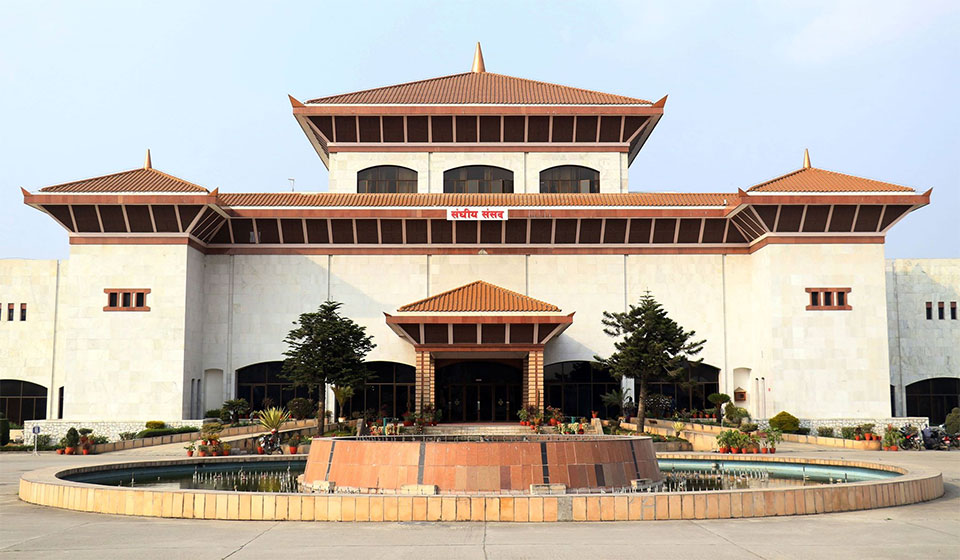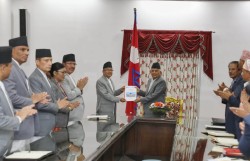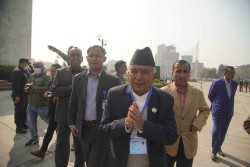Politics

The Parliament Secretariat is preparing to introduce an electric attendance system to discourage the trend of lawmakers leaving the parliament shortly after arrival.
According to Parliament Secretariat spokesperson Rojnath Pandey, the preparations are on for introducing electric attendance aimed at binding lawmakers procedurally to spend required hours in the parliament and meetings of its committees.
The members of the parliament are expected to play active roles in each of the House businesses.
National Assembly Chair Ganesh Prasad Timilsina has already directed the secretariat to manage the electric attendance following the suggestion of the Business Advisory Committee.
The first parliament formed in 2016 is believed to have been much more vibrant and lively than the subsequent Houses. The trend of lawmakers leaving the parliament shortly after their arrival has increased.
A lack of quorum at the parliament and the parliamentary committee meeting has been common, resulting in the postponement of the meeting.
Their frequent absence from parliamentary meetings has called into question the responsibilities and duties of people's representatives.
Experts argue that laws and decisions without an in-depth discussion of bills and proposals by people's representatives would be without quality.
Often, parliamentary meetings had to be postponed due to a lack of quorum. But surprisingly, lawmakers are found to be participating in any programme launched by a non-governmental organisation.
"Participation of parliamentarians in programmes hosted by any non-governmental organisation is a long, drawn-out problem," commented Ram Narayan Bidari, a former member of the National Assembly.
"This is a matter of conscience. The issue of which meeting lacked a quorum, which parliamentarians were absent, and on what bill a deliberation was underway should be made public."
According to experts, an electronic attendance system for people's representatives may track their activities, thus helping sort out these problems.
Such new tools are expected to contribute towards making the parliament activities more effective and efficient.
Even the top leaders of the major political parties are often found to be skipping parliamentary committee meetings or parliament sessions, marring the parliamentary debates. That hinders in concluding some important topics.
Except for former prime ministers Madhav Kumar Nepal, Baburam Bhattarai and Jhalanath Khanal, all other top leaders have poor parliamentary attendance.
"The scant presence of lawmakers in the parliament and parliament committee meetings is a problem. In many instances, the meetings had to be suspended due to the lack of the required quorum," said Bishal Bhattarai, CPN-UML's former chief whip.
He added that the people and civil society have been criticising the parliament on this ground, which needs to be corrected in the coming days.
All people have been appreciating the role of the Nepal Workers and Peasants' Party in parliament as this party's lone lawmaker has been actively participating in the meetings, raising pertinent issues in the deliberations.
A legal provision states an MP loses his/her post if he/she is absent from the House meetings 10 times in a row.
The people's representatives' primary responsibility is actively participating in the parliament's meetings and deliberations. The parliamentary debates, question and answer sessions, discussions, meetings and advocacy contribute to making democracy richer.
Nepal has a bicameral federal parliament comprising the 275-member House of Representatives (HoR) and the 59-member National Assembly.
There are 10 thematic committees in the HoR, four in the NA and two joint committees where rich discussions are held on the bills and proposals.
- RSS

_11zon1677572614.jpg)




